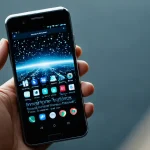The role of IoT in reshaping consumer engagement in UK marketing
Integrating IoT and consumer engagement in UK marketing is transforming how brands connect with customers. IoT devices offer real-time data, enabling marketers to deliver highly personalized experiences. This marks a major shift from traditional one-way advertising to interactive, data-driven communication, reflecting significant UK marketing technology trends.
IoT benefits for marketers include precise audience targeting, seamless multichannel engagement, and enhanced customer insights. For example, connected devices like smart speakers or wearables provide continuous feedback on consumer preferences and behaviour. This allows brands to anticipate needs and adjust marketing strategies promptly.
In parallel : How Can Businesses Leverage Cloud Solutions to Transform Their Marketing Strategies?
Moreover, IoT facilitates dynamic campaigns where content adapts based on device-generated data. This leads to higher engagement rates and stronger brand loyalty. The ability to monitor interaction patterns across home, retail, and mobile environments highlights how IoT and consumer engagement in UK marketing have become interwoven.
In summary, IoT is reshaping consumer-marketer relations by driving more responsive, personalized marketing efforts aligned with evolving UK market demands and technologies. These shifts underscore the growing impact of IoT benefits for marketers in the competitive UK landscape.
Topic to read : How Does Understanding Computing Concepts Enhance Digital Marketing Strategies?
Examples of IoT transforming consumer interaction
In the UK, IoT devices have revolutionized how brands connect with consumers, enabling more personalized marketing efforts that resonate deeply. Smart speakers and wearables are prime examples of IoT devices UK that collect real-time data on user preferences, habits, and environments. Marketers leverage this data to craft smart marketing strategies that are not only targeted but dynamically adjusted to customer behaviors.
One powerful instance is the use of wearables to provide health or fitness-related brand messages tailored to the user’s activity level, preferred time of day, or even location. Similarly, smart speakers enable voice-activated interactions, allowing brands to offer customized deals and recommendations in real-time.
This integration of IoT into personalized marketing UK campaigns means customers receive highly relevant offers that feel natural and timely. Brands can amplify engagement and loyalty by responding to the subtle cues IoT devices capture. As a result, IoT-driven smart marketing is no longer a futuristic concept but an effective tool actively shaping consumer experiences across the UK today.
UK case studies demonstrating IoT-driven engagement
Discover how UK IoT marketing examples reveal the real-world impact of Internet of Things on consumer engagement. One standout case study UK IoT projects involves retail brands using smart shelves and beacon technology to personalise shopping experiences. These technologies trigger targeted offers when customers approach specific products, boosting interaction rates by over 30%. Another compelling example is in the hospitality sector, where IoT sensors monitor guest preferences and room conditions, enabling personalised marketing messages and service adjustments in real-time.
Real-world IoT marketing success stories from the UK highlight significant improvements in customer loyalty and sales. For instance, a fashion retailer integrated IoT-enabled mirrors that provided style recommendations based on previous purchases, increasing repeat visits. Analysis of these case studies UK IoT strategies consistently shows that IoT not only enhances engagement but also delivers actionable data for ongoing campaign refinement.
These examples underscore how UK brands leverage IoT to convert data into valuable insights, ensuring marketing efforts resonate more profoundly with their audiences. Exploring these case studies UK IoT helps marketers understand practical IoT applications that yield measurable results.
Strategic changes to engagement in the IoT era
In the UK, marketers are embracing a marketing strategy UK IoT that leverages the abundant data generated by connected devices. This data allows for a far more precise consumer engagement strategy, enabling brands to tailor content and offers based on real-time insights into user behaviour and preferences. Traditional outreach methods are giving way to dynamic, context-aware interactions that improve relevance and responsiveness.
A key shift is seen in the measurement and optimisation of consumer engagement. Metrics now go beyond crude click rates or impressions; instead, marketers focus on interaction depth and sustained engagement across multiple IoT touchpoints. For instance, data from smart home devices can reveal usage patterns that inform campaign adjustments instantly, thereby enhancing effectiveness.
This marketing adaptation UK involves integrating IoT data into CRM systems to create highly personalised experiences, fostering loyalty and satisfaction. Companies are investing in analytics tools that can synthesize vast IoT datasets to refine segmentation and predict customer needs. Such strategies represent a fundamental transformation in how UK marketers engage with consumers, moving from broad assumptions to finely tuned, data-driven tactics.
Challenges and benefits of IoT adoption in UK marketing
IoT adoption in UK marketing unlocks significant benefits by enabling brands to engage consumers through personalized, real-time interactions. With IoT devices collecting rich data, marketers can fine-tune campaigns to target specific preferences and behaviors, enhancing customer experience and boosting conversion rates. This IoT adoption benefit is vital for businesses aiming to stay competitive in a digital-first environment.
However, IoT marketing challenges UK are substantial. Data privacy is a central concern, as devices often gather sensitive information. The UK enforces strict data privacy UK IoT regulations like GDPR, requiring marketers to handle data transparently and securely. Failure to comply risks legal penalties and loss of consumer trust.
Technical complexity also poses a hurdle. Integrating diverse IoT platforms demands specialized skills and infrastructure, raising costs and slowing adoption. Despite these challenges, the opportunities IoT presents for UK consumer engagement innovation are immense. Marketers willing to invest in robust privacy measures and advanced technology stand to transform customer relationships through smarter, data-driven campaigns that resonate deeply with UK audiences.
Future trends and outlook for IoT in UK marketing
In the future of IoT marketing UK, the landscape is set to evolve with more sophisticated data-driven techniques. As IoT devices multiply, marketers gain unprecedented access to real-time consumer behaviour insights, enabling deeper personalisation and precise targeting. This growth aligns with emerging marketing technologies, where automation and AI combine with IoT data streams to craft tailored experiences without manual intervention.
The IoT trend UK marketing will continue to push boundaries in personalisation, making it possible to anticipate customer needs before they arise. For example, connected devices in homes and wearables allow campaigns to adapt moment-by-moment, increasing relevance and engagement. This expansion also opens doors for smarter, automated content delivery depending on contextual signals provided by IoT ecosystems.
Looking ahead, the potential for further personalisation and automation through IoT expansion is tremendous. Marketers can leverage integrated IoT platforms to streamline customer journeys, creating a seamless and dynamic brand interaction. Staying ahead in this evolving market depends on embracing these emerging marketing technologies and harnessing the full power of IoT data to craft meaningful consumer experiences, reshaping UK marketing strategies for years to come.


